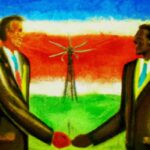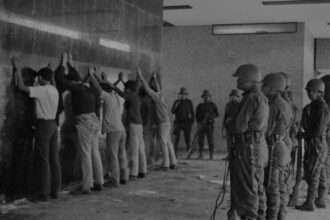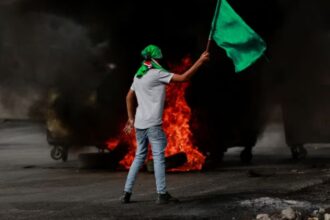Burkina Faso’s military leadership has entered into an agreement with Russia to construct a nuclear power facility aimed at bolstering the country’s electricity supply. This development marks the junta’s latest endeavor to establish closer ties with Russia, having experienced strained relations with most of its Western allies. Since taking control last year, the junta has sought economic and military support from Russia.
Burkina Faso currently grapples with one of the lowest electrification rates globally, with only 21% of its population connected to power sources. The recent pact with Russia follows discussions between the Burkinabe military leader, Captain Ibrahim Traore, and Russian President Vladimir Putin during the Russia-Africa summit in Moscow in July. At that meeting, Captain Traore sought President Putin’s assistance in establishing a nuclear power plant in Burkina Faso to address the country’s energy needs as well as those of neighboring nations.
Captain Traore emphasized the strategic importance of Burkina Faso’s location in the heart of West Africa and the pressing energy deficit in the sub-region. This agreement aligns with Burkina Faso’s goal of achieving 95% electricity access for urban areas and 50% for rural regions by 2030.
Currently, Burkina Faso primarily relies on biofuels such as charcoal and wood for electricity generation, with oil products constituting a third of its overall energy supply, as reported by the International Energy Agency. According to the U.S. development agency USAid, Burkina Faso also contends with some of the highest electricity costs in Africa.
While South Africa is presently the sole African nation engaged in commercial nuclear power production, more countries on the continent are gravitating towards nuclear energy. Notably, Russia is supporting Egypt in constructing a nuclear power plant with a price tag of $30 billion, a venture initiated following an agreement between Presidents Abdel Fattah al-Sisi and Vladimir Putin in 2017. Russia also inked a deal for power plant construction in Nigeria the same year, although the project has yet to commence.
Kenya has announced its intentions to establish its inaugural nuclear power plant by 2027, albeit without a finalized international partner. Additionally, Rwanda has selected the Canadian-German company Dual Fluid Energy to construct a nuclear reactor by 2028, aiming to meet its energy needs and enhance climate change resilience.
Despite increased access to energy in sub-Saharan Africa in recent years, a significant portion of the region’s population, exceeding 50%, remains without access to electricity, as noted by the United Nations Conference on Trade and Development (UNCTAD).


















